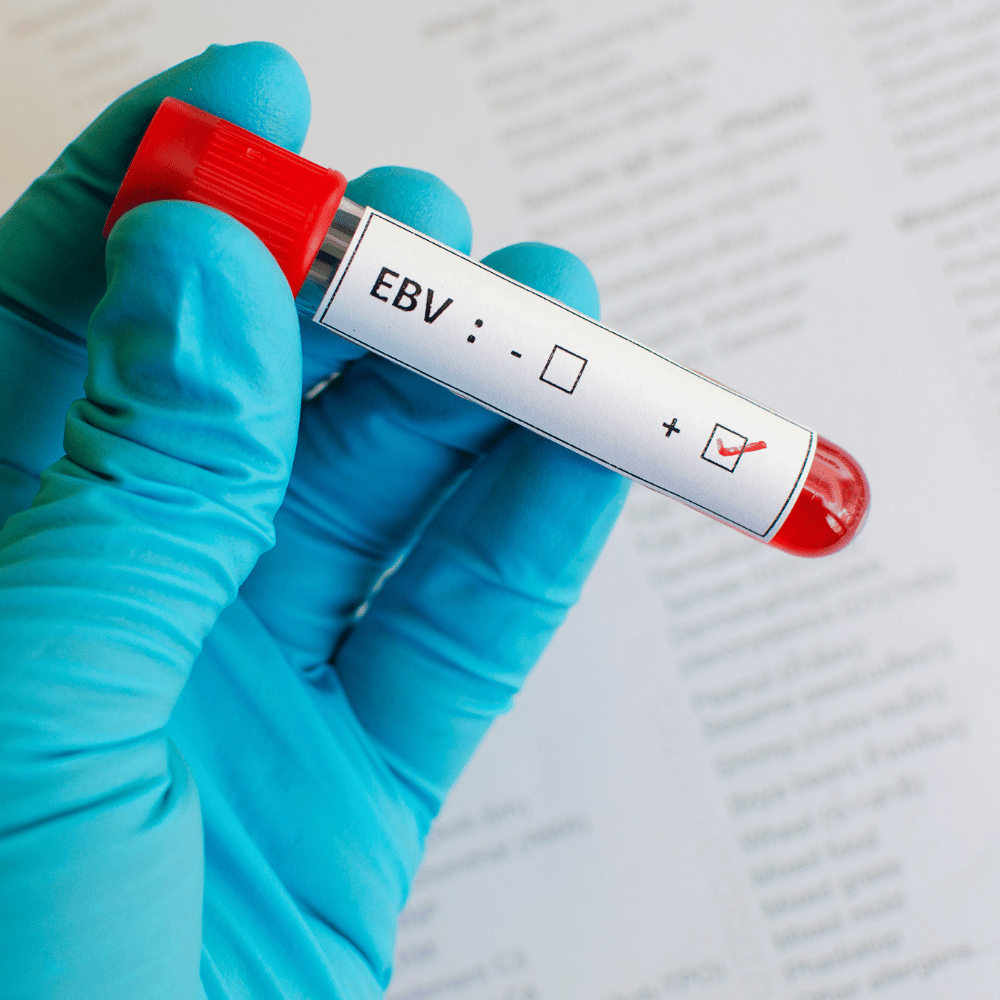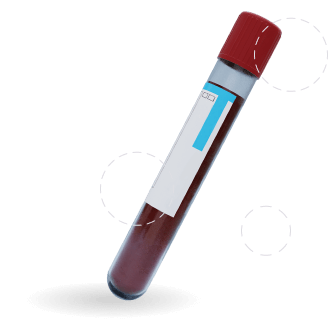
Medical Weight Loss Explained
A lot is said about medical weight loss but we are here to debunk the myths for you.
Blood Tests > Glandular Fever Testing

Find Out More


Yes, glandular fever is contagious and spreads from person to person through contact with saliva.
It is estimated that 95% of adults have been infected with EBV (Epstein–Barr virus), the virus that causes glandular fever (also known as mononucleosis, mono, or the kissing disease), at some point in their lives.
EBV infection can be asymptomatic or can manifest as glandular fever. If you are concerned that you may have contracted EBV, we are here to assist you.

Epstein-Barr virus (EBV) is the virus responsible for causing glandular fever, which primarily affects young adults and teenagers, although it can also affect individuals of other age groups. While it usually presents with symptoms such as severe fatigue, fever, a very sore throat, and swollen neck glands, most of these symptoms resolve within the first month.
If you suspect you have contracted EBV, it is essential to seek a proper diagnosis from a doctor to monitor potential complications of the infection carefully.
At Walk-In-Clinic, we offer two different tests:
EBV (Epstein-Barr virus) is a member of the herpesvirus family and one of the most common human viruses worldwide. It spreads primarily through saliva, especially during close contact like kissing, and infects B lymphocytes and epithelial cells.
After initial infection, EBV can remain dormant for life, occasionally reactivating without symptoms in healthy individuals. However, it can also lead to serious conditions such as certain cancers like Burkitt’s lymphoma and Hodgkin’s lymphoma.


Glandular fever is primarily caused by the Epstein-Barr virus, which can spread through various means. It is typically transmitted through close contact with an infected person, especially through activities like kissing or sharing utensils that involve exposure to saliva. Individuals with a weakened immune system are more susceptible to developing glandular fever.
Furthermore, living or spending time in crowded environments such as schools, colleges, or military barracks, where close contact is frequent, increases the risk of transmission. Poor hygiene practices, such as irregular handwashing, can also contribute to the spread of EBV.
When you have glandular fever, you can expect the following:

Use our online booking engine or book your test by giving us a call.
On the online booking engine select the “appointment type” you need.
You will be seen by one of our friendly phlebotomists or trained clinicians.

To ensure the smoothest experience during your blood test, we kindly request that you arrive well-hydrated, as it makes drawing a sample of your blood easier. Your comfort and the efficiency of the process are our priorities, and we appreciate your cooperation in preparing for this appointment.

A glandular fever blood test is a routine blood draw that is generally well-tolerated. A needle is typically inserted into your arm to draw a sample of your blood, and the procedure only lasts a few minutes.

Our doctor will call you to explain your results if you had your test alongside a GP consultation. If you came for the blood test only, we will email you the results, and you can take them to your own doctor for interpretation or book a consultation to come back and see one of our GPs.
No
Hidden Charges
Transparent fees. The price you see is the price you pay.
No GP consultation
needed
No GP appointment requirement for blood tests
Established
since 1998
Experienced doctors & a professional team.
Strictly
confidential
Your medical records are kept private at all times.
We offer a wide range of private blood tests in London. Same-day appointments are available 5 days a week.
We work with experienced consultants & healthcare professionals who have received positive feedback from our patients, and with whom we have established long-term relationships.
Latest Episode
Tune in to our podcast to explore the world of healthcare and learn from distinguished special guests. We cover everything from preventative measures to cutting-edge treatments so that you can stay informed and up-to-date on health-related things.

A lot is said about medical weight loss but we are here to debunk the myths for you.

Tourist in London and need a GP? Get fast, private care for illnesses, injuries, or lost medication. No registration needed.

With NHS appointments harder to access, many people are turning to private GPs for faster, more convenient care.
Subscribe for latest updates & news


From same-day private GP and blood test appointments to visa medicals, a sexual and reproductive health clinic, and preventative health screenings, we are here to help.
Contact Us
Accepted Insurance Companies






Please note that Walk-in Clinic is a private medical centre & not an NHS service. Harley Walk-in Clinic Ltd company registration no. 07472804